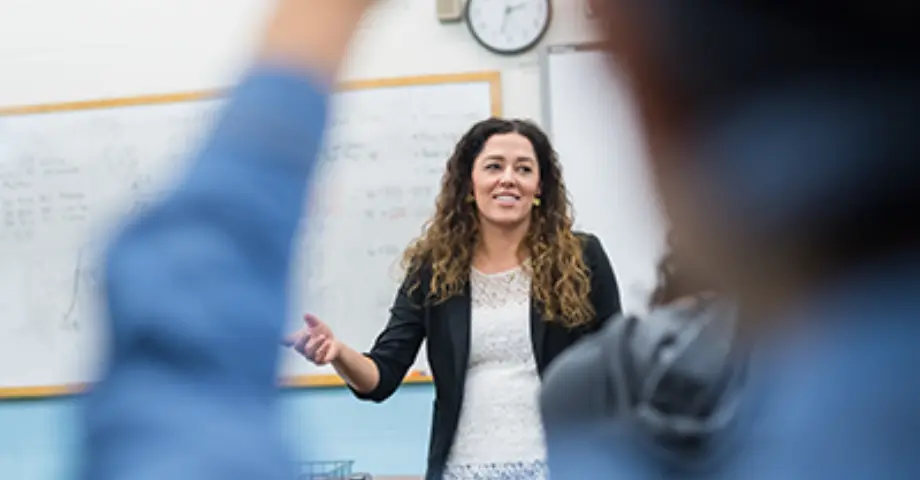
Approaches to Expanding Possibilities
Relationship-building approaches are techniques you can integrate into program or classroom activities. They also can be worked into the informal interactions you have with young people in the hallway, after class, on the playground, along the hiking trail, or on the front steps while they wait for a ride home.
Expanding possibilities may seem like something you mostly do by going to new places or talking about new ideas. Yet it begins with a relationship in which you know and see the other person in ways that other people might not—including the person themselves. Your insights on who they are and your own experiences, ideas, connections, and imagination may be able to open up new possibilities that they hadn’t considered. When that happens, they’ll always remember you for it.
Relational Practice
Approaches to Expanding Possibilities
Resource Audience
Resource Type
Read Time
Participants
-
Make sure content you use is reflective of the young people in terms of race, gender, ethnicity, age, culture, religion, sexuality, ability, etc. For example, if you are making a collage using magazine pictures, make sure the youth can see themselves in the images.
-
Ensure that young people are aware of multiple possibilities before they make important decisions. For example, when discussing life after high school with young people, be sure they know about and consider a wide variety of options, including two- and four-year colleges, careers, internships, apprenticeships, and trade schools. Make connections between young people’s strengths, dreams, and interests and these future opportunities.
-
Recommend things to watch, listen to, or read to gain exposure to new ideas, prompt consideration of different perspectives, and expand a young person’s thinking about a topic.
-
Ask about and listen for things that young people are curious about or like to do. When you discover such a subject or interest, encourage the young person to learn more about it. When possible, provide them with resources to engage in and build on that interest, such as clubs, classes, events, books, websites, field trips, guest speakers, or other opportunities.
-
Facilitate conversations and connections among young people that cross lines of difference
-
Bring young people to places they’ve never been to before. This can include in-person trips to destinations near or far, or virtual field trips. Take time to reflect together on what they learned through this new experience.
-
Introduce young people to other people or organizations who have expertise in something they want to learn or get better at. Encourage these new connections to share their stories with youth and for youth to ask questions about their experiences. Some youth may be nervous to meet new people, especially if they are older or have a role/position that could be intimidating. Rather than making an introduction and leaving the young person to connect independently, meet with the new person and the young person together so everyone feels comfortable.
-
When you see a talent in a young person that they might not see in themselves, let them know, “I think you might be really good at this.”
-
Whether it is examples from the lives of famous people or historical figures, interviewing other adults in your community, or sharing your own story, help young people see that there are many ways that an individual’s life experiences and decisions shape the journey they take in becoming adults and figuring out what they want to do in life.
-
Provide young people with experiences and share insights that help them understand that the things they do in the present will influence the options that they have in the future.
Related Resources on Social and Emotional Development

Tool / Playbook
Reframing Family Engagement
A self-reflection tool from Search Institute outlining six shifts of emphasis that can energize how schools and organizations engage with families.

Activity
Spider Web
Activity where participants stand in a circle and work together using yarn to create a web that can support a ball or balloon.

Relational Practice
Approaches to Providing Support
Ten approaches that can be integrated into classroom or program activities that build the Provide Support element of the developmental relationships framework.
Related Resources on Diversity, Equity and Inclusion

Webinar
Fostering Relationships for Student Motivation, Well-Being, and a Positive School Climate
In this webinar, viewers gain a shared understanding of the intentional approach to relationships, focusing on advancing district and school outcomes.

Tool / Playbook
DR + Math Toolkit
The DR + Math Toolkit supports and encourages math tutors and educators in building culturally responsive developmental relationships with young people.

Guide
Social Capital Assessment + Learning for Equity (SCALE) Measures
The Social Capital Assessment + Learning for Equity (SCALE) Measures User Guide and Technical Manual are tools that help organizations build social capital.